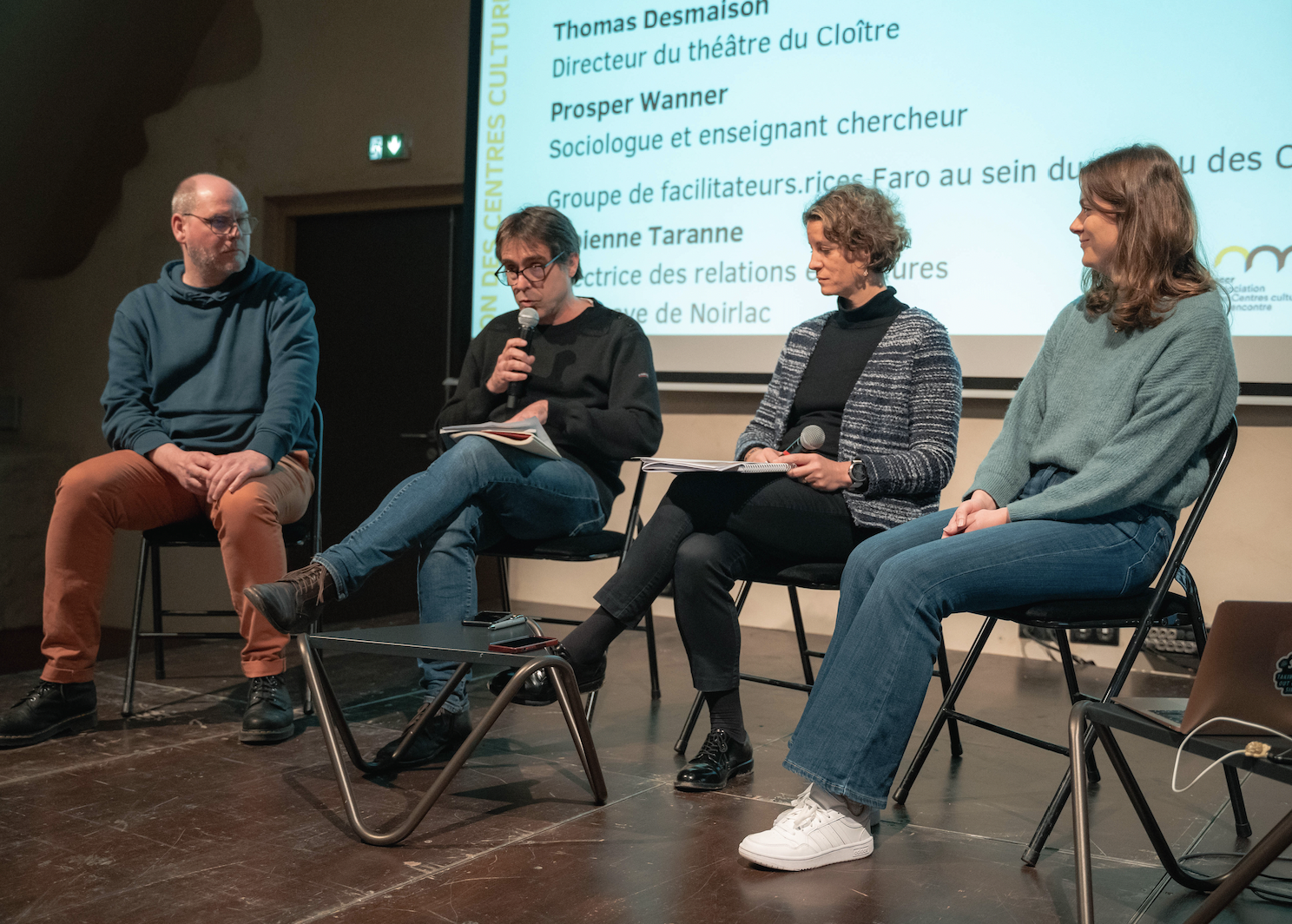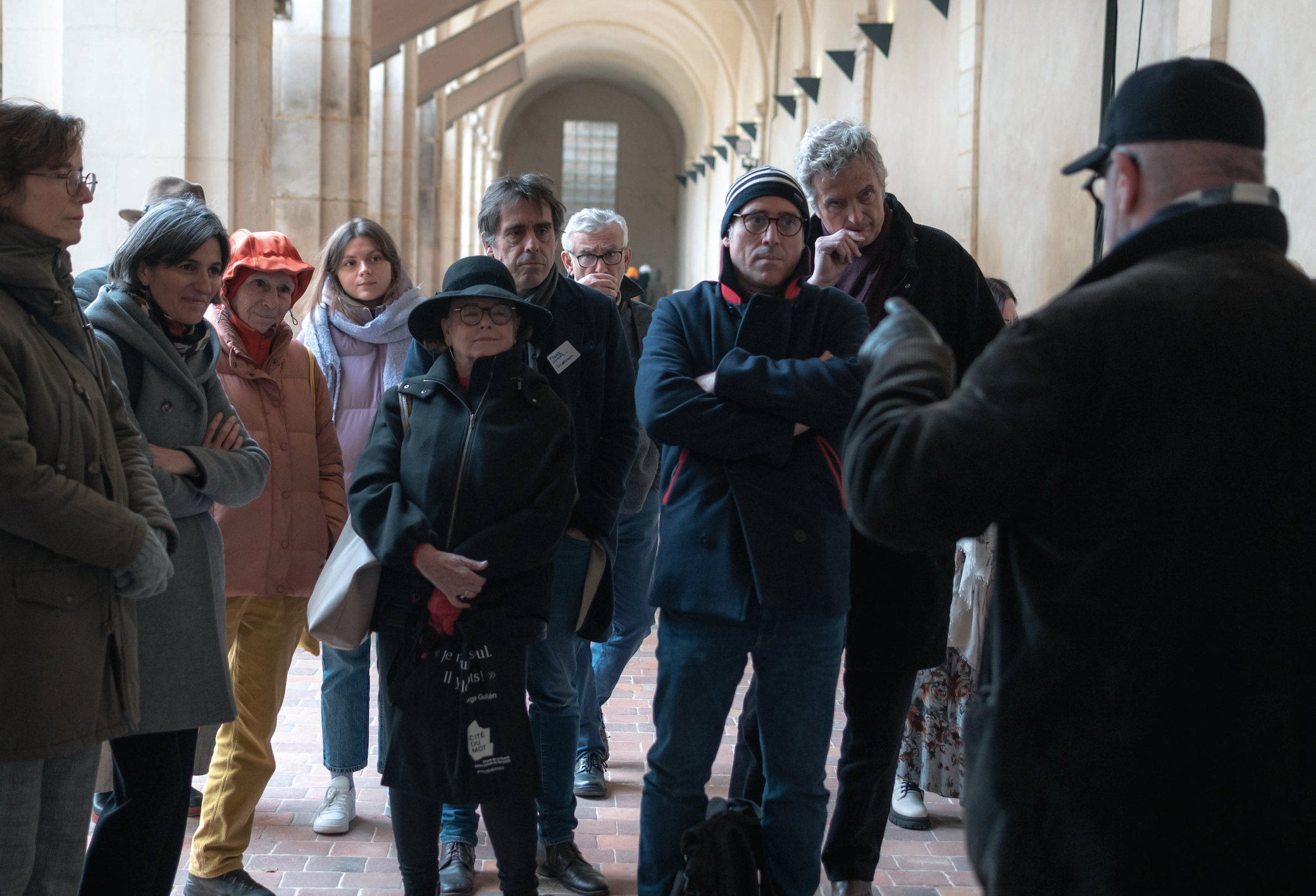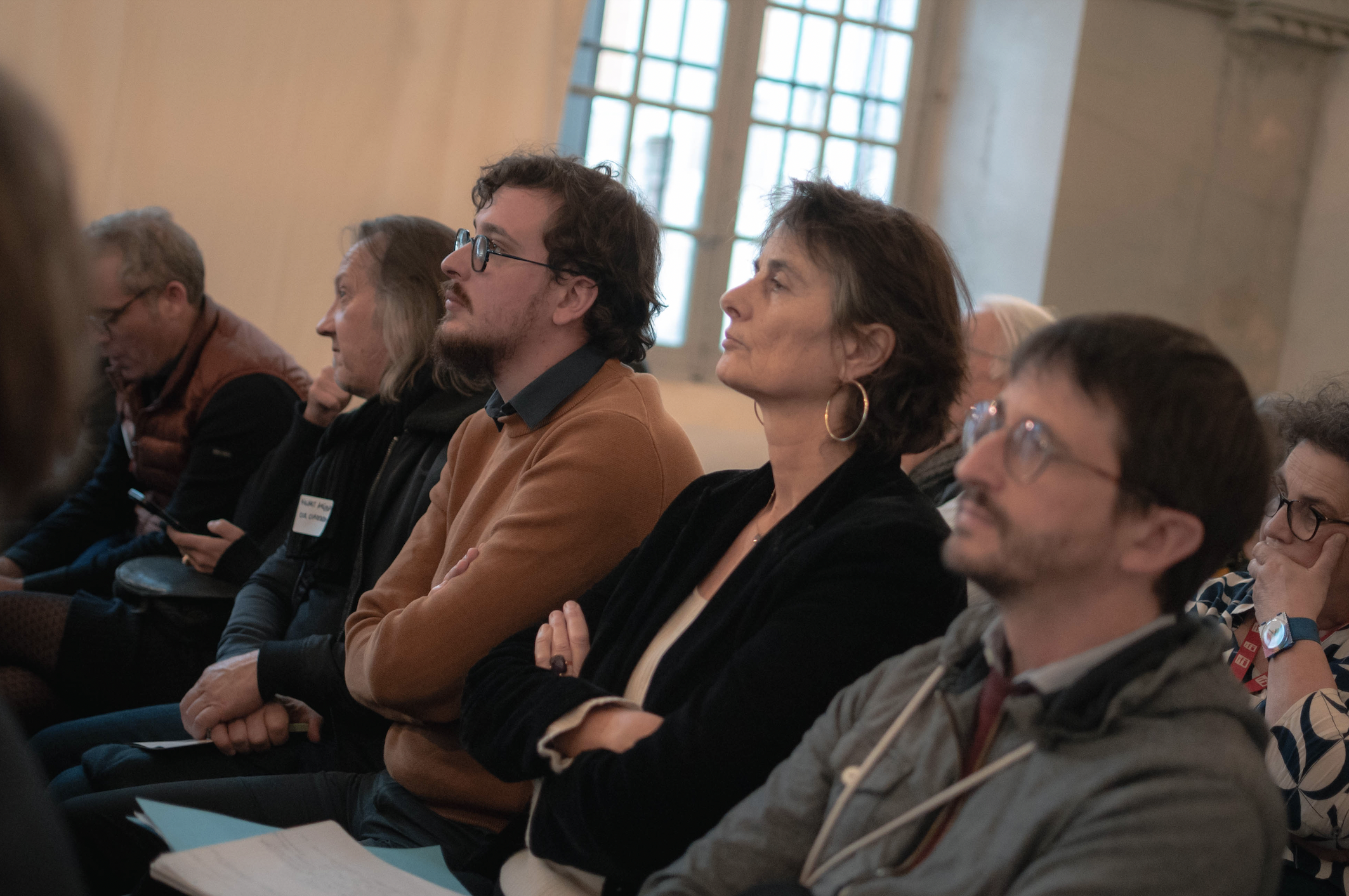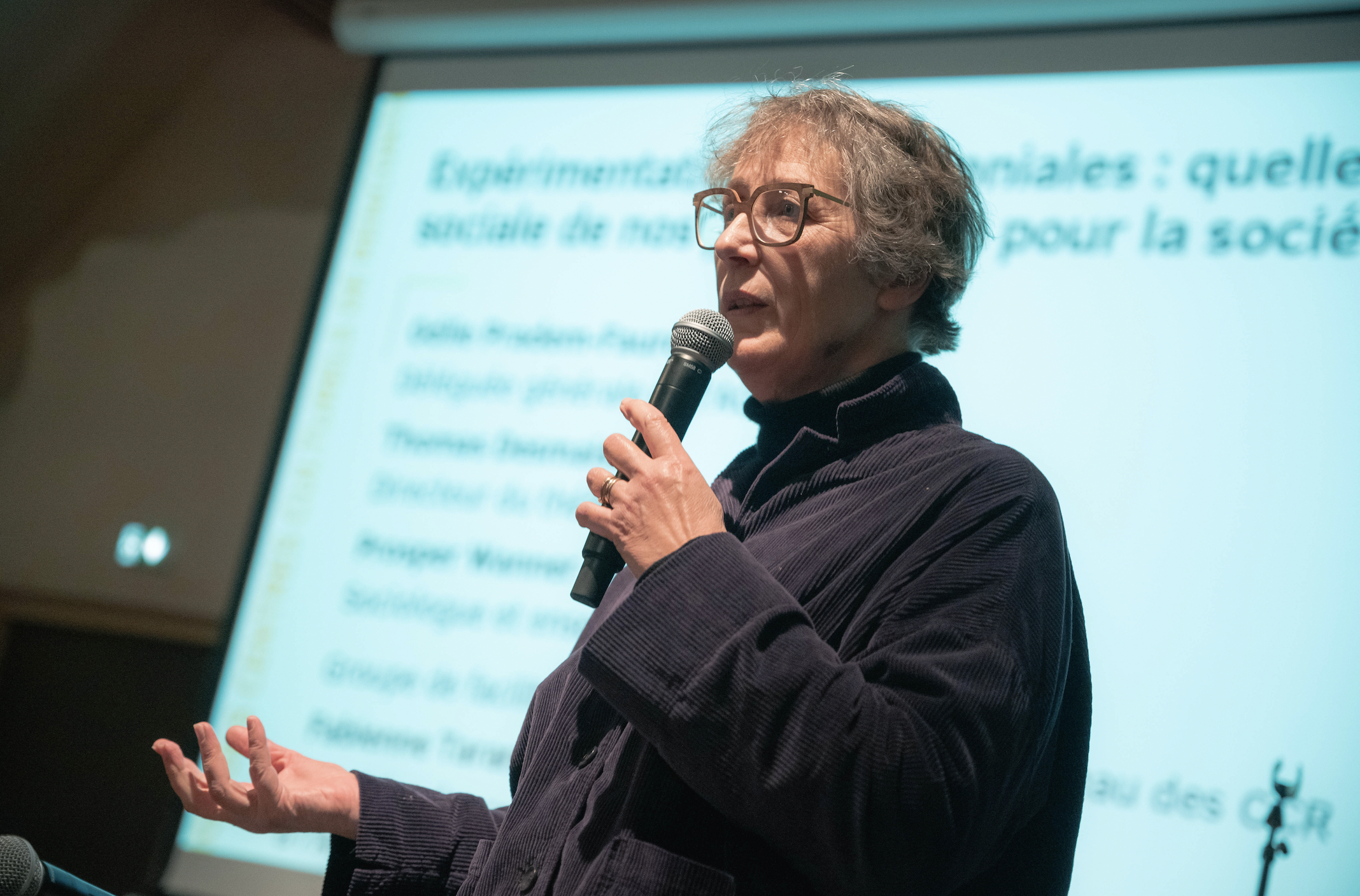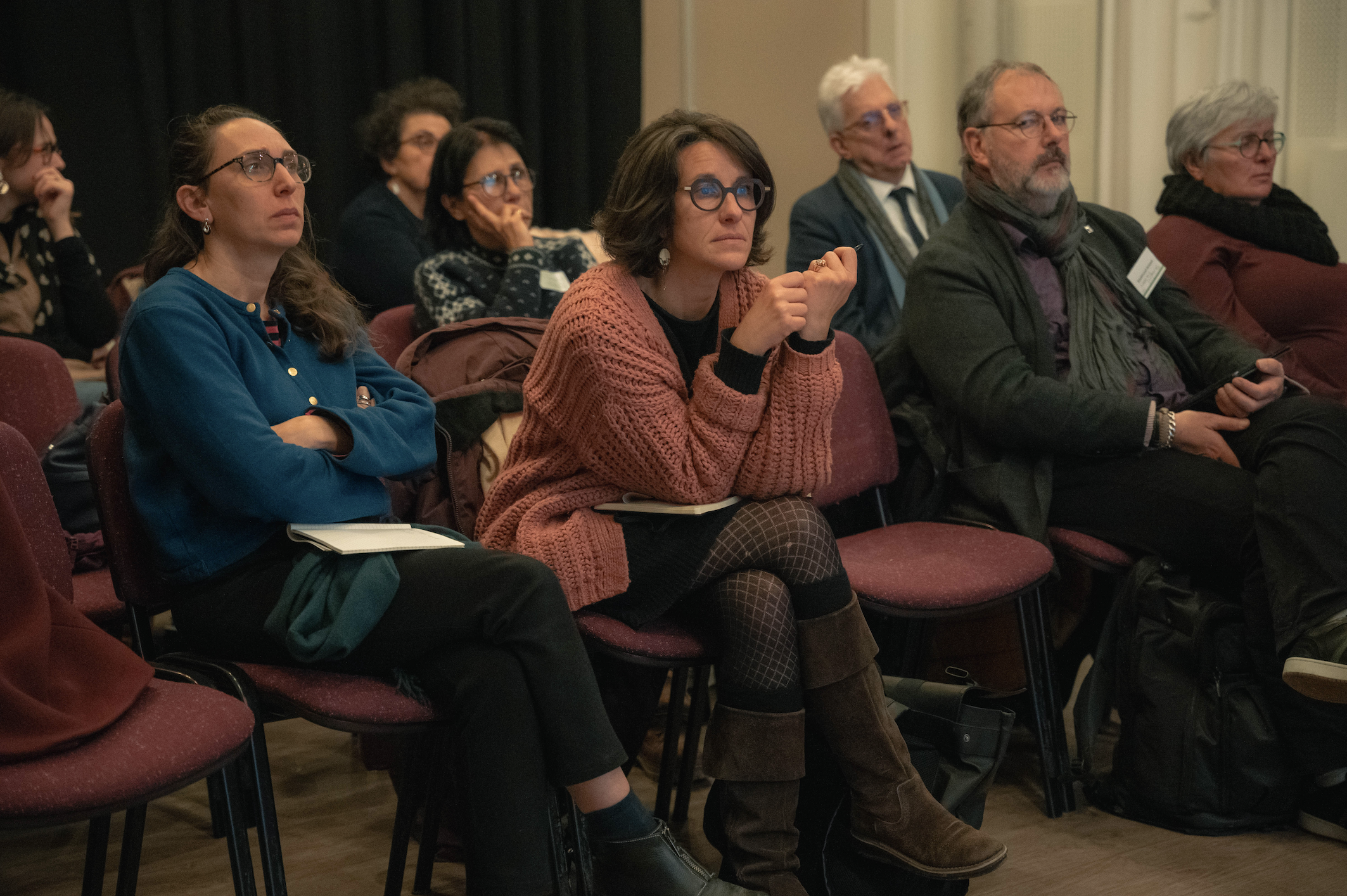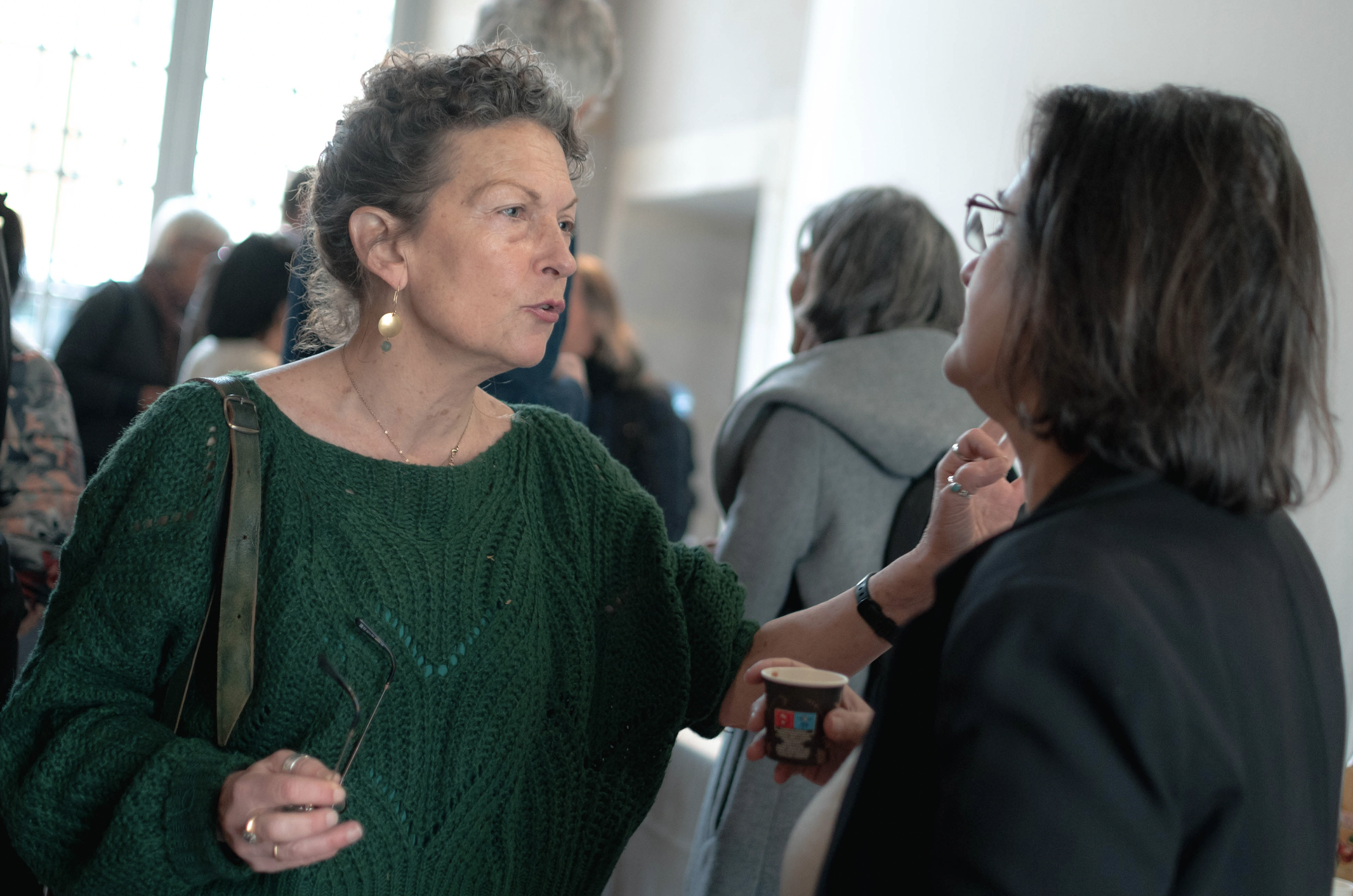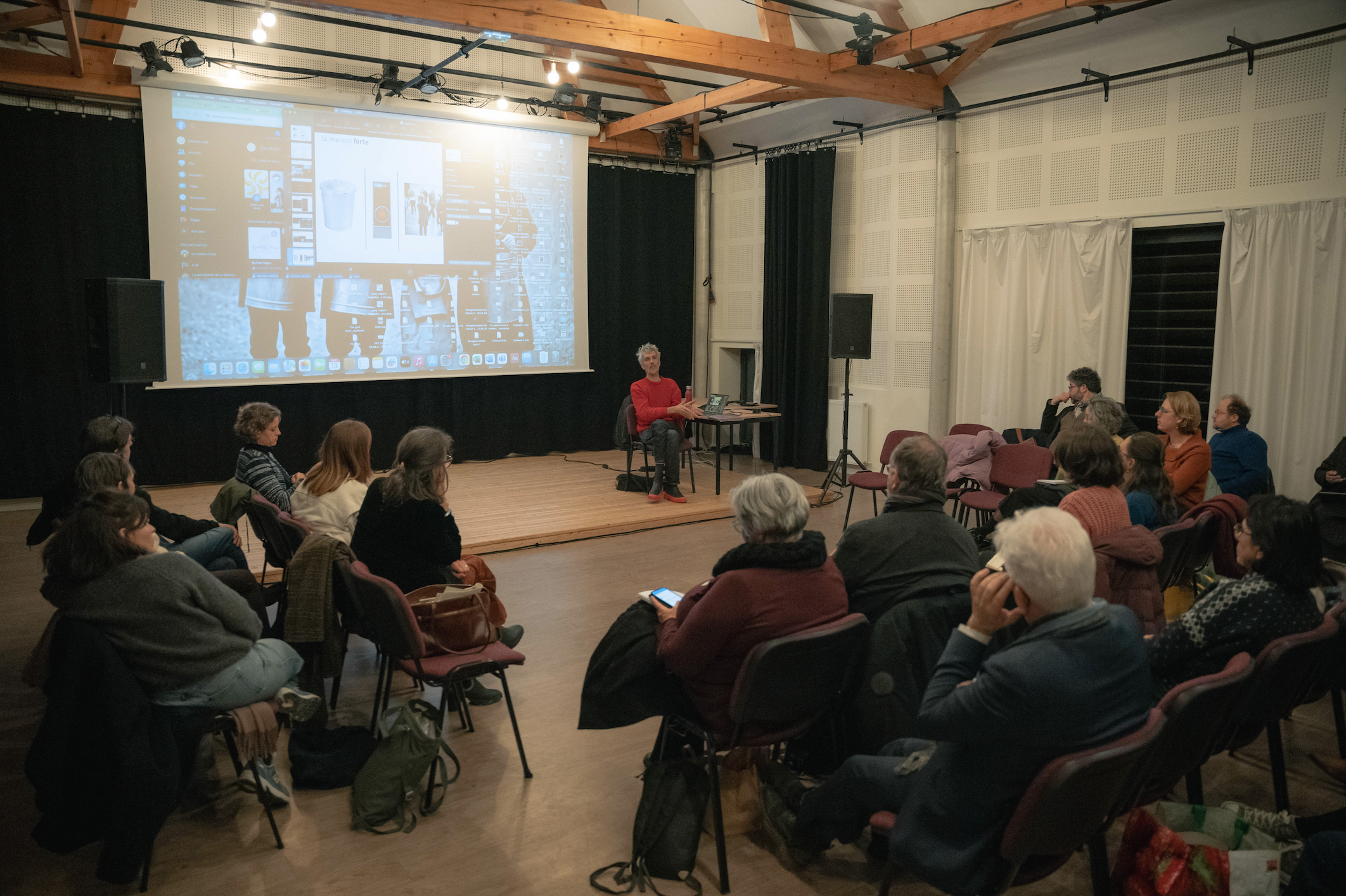As part of the ‘Living heritage: exchanges and cooperation at the heart of territories’ meetings, the group following the ‘Interpreting and applying the principles of the Faro Convention’ training course, organised by the ACCR and Oiseaux de Passage since October 2023, was able to share its progress.
While it is not within the remit of the ACCR and its members to promote the Faro Convention stricto sensus, the fact remains that the multi-annual agreement on objectives between the association and the French Ministry of Culture stipulates that:
‘The ACCR contributes in particular to developing the expertise of the CCR teams concerning the appropriation of heritage by the inhabitants. Given their special relationship with the local area, the CCRs consider residents as people with cultural references who are involved in local cultural life and not as potential users or audiences. In the spirit of the Faro Convention and cultural rights, it acts in particular in favour of the development of heritage communities in the environment of the CCRs and contributes to questioning the meaning of heritage as well as its appropriation by all inhabitants’.
Based on this text, since December 2021 the ACCR has been experimenting with methods of approaching heritage, which has taken the form of a long-term training process for members of the network and its partners, coordinated by Oiseaux de Passage.
The aim is to reconcile the interests of the network and respond to the issues driving the ACCRs, including the ecological and social transition, a change in the approach to tourism and a new understanding of rurality. The working group is therefore looking at ways of developing a methodology that will enable them to innovate, create new stories and new cultural offerings without being restrictive for their teams.
The aim of this training course is to provide tools that can be made available to teams in the field and to management so that they can apply the principles of the Faro Convention across the board in their activities, whatever the specific characteristics of the centres. Some of the tools created include: a glossary, FAQs, introductory modules to give a better understanding of certain themes (the differences between a participatory model and a cooperative model, between top-down guided tours and co-constructed walks, etc.), a self-assessment grid for the structure in relation to the principles of the Faro Convention, a directory of resource persons, a bibliography, etc.
At a time when society's relationship with contemporary creation is proving to be complex, the ACCR is proposing to promote the work of the teams as resource people for the territories. The idea is to rethink the way we do things, and the consideration and place given to local people in cultural programming choices. Instead of an elitist and exclusionary approach to heritage, the ACCR favours one that recognises the right to cultural heritage as a human right to participate in cultural life.
It encourages people to ‘build heritage together’ by promoting cooperation on the ground between all stakeholders: scholars, matri-heritage specialists, public officials, private companies, associations and anyone else who wants to take part. The Faro Convention calls for the diversity of narratives to be respected and for them to be brought into dialogue to facilitate mutual understanding and coexistence.
The Faro Convention also proposes that responsibility for heritage should be shared more widely between elected representatives, institutions and civil society in order to strengthen democracy. The CCRs could be local democratic laboratories for heritage management by creating democratic conditions for dialogue with the diversity of their residents, who include employees, administrators, tourists, artists, neighbours, institutions and academics. The Château de Goutelas, for example, is considering this form of shared governance.
In order to support teams wishing to explore these many concepts, the working group will eventually be able to go out into the field to present the tools available and share their thoughts.

